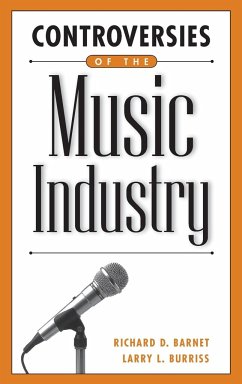This work presents 12 of the most volatile ethical issues facing the music industry. Real-life examples depict both sides of each controversy, and the list of resources provides tools for readers who wish to pursue the controversies further. Primary sources including court cases and excerpts from speeches help students build critical thinking skills in current issues, persuasive writing, and debate classes. Among the controversies noted is the growing oligopoly of a few multinational music companies and the independent labels that are attempting to survive this market dominance. Drug abuse and violence depicted in music is discussed, as is its influence on young listeners. These issues and many more are discussed in detail as the authors outline the controversial topics of the music industry.
Hinweis: Dieser Artikel kann nur an eine deutsche Lieferadresse ausgeliefert werden.
Hinweis: Dieser Artikel kann nur an eine deutsche Lieferadresse ausgeliefert werden.








